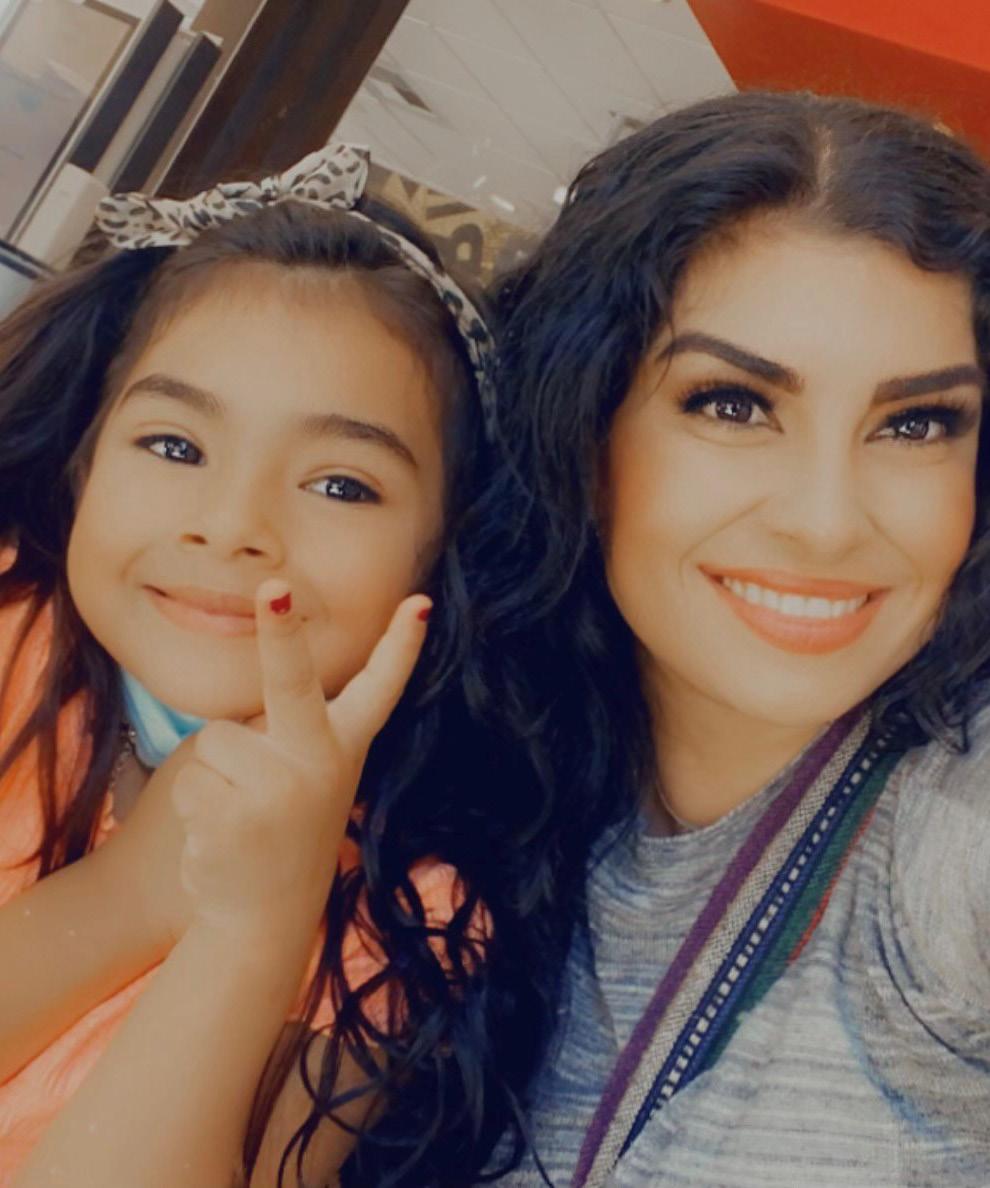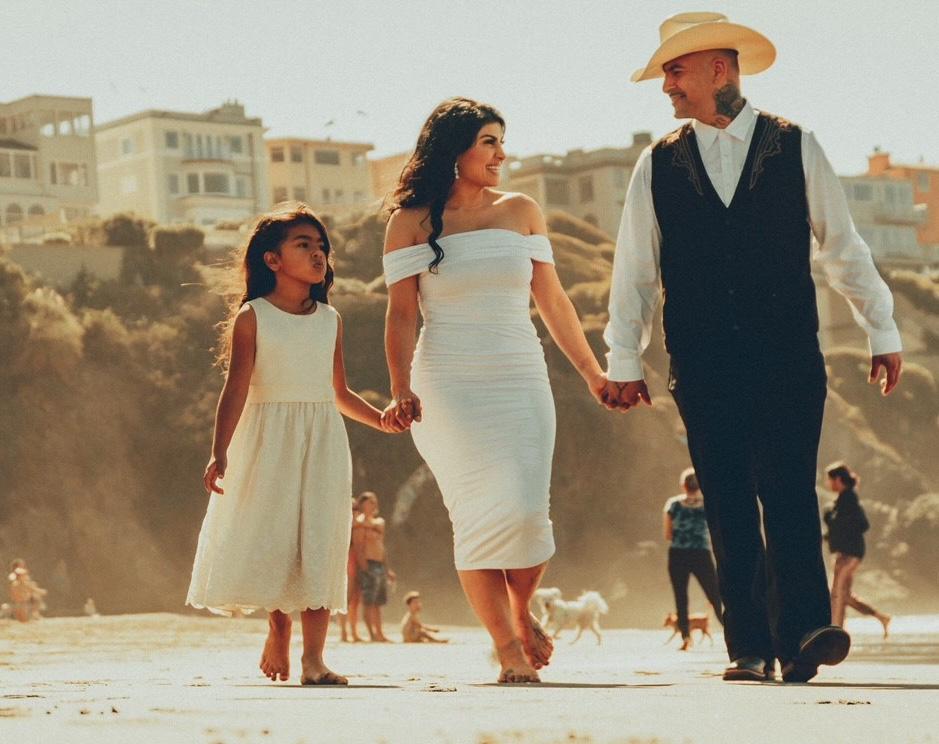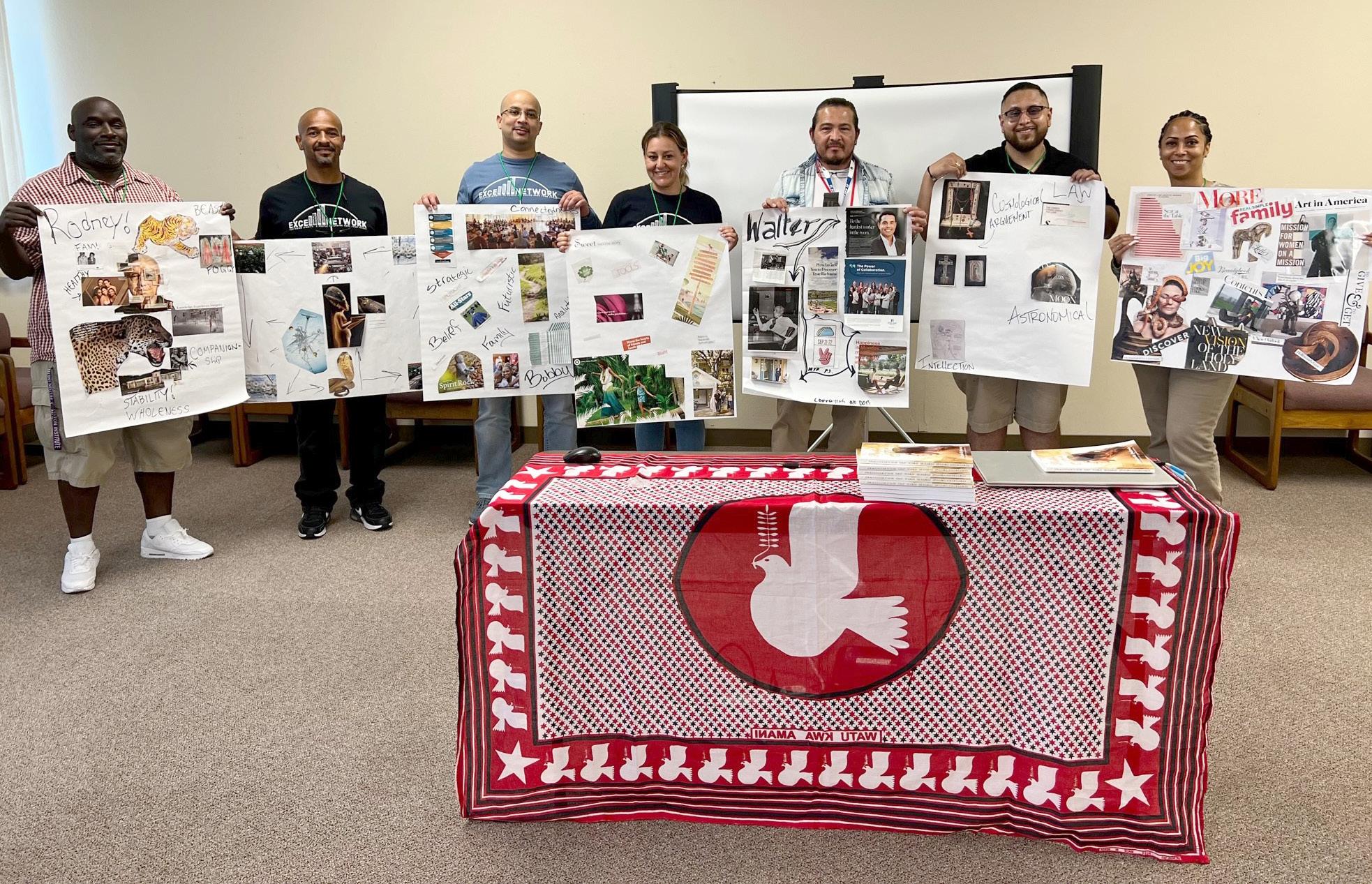
3 minute read
DAISY GONZALEZ
“I just felt like such a big, big monster,” says Daisy. “It’s ugly and it’s crazy, but it’s the truth.”
Sitting in jail, Daisy had time to reflect on things. One of those things was the occasionally desperate, often chaotic, and dangerous direction her life had taken since she was a little girl growing up in Dixon.
“We had a different kind of family ‘cause my family sold drugs,” says Daisy. “It was a small town, and there was a lot of finger-pointing and judging.”
There was also trauma. At an early age, Daisy says, she saw her father being shot at by the police. She also witnessed her mother being assaulted during a home invasion.
“That really messed me up,” she says. “But I never really got any help to deal with it. I was afraid I’d get my parents in trouble.” of possession and sales charges.
Daisy found another way to escape the painful emotions she was dealing with. At the age of 12, she started numbing them by taking drugs. She also started running away from home, which seemed to help, too. Both coping mechanisms, however, led to arrests and probation throughout her high school years.
It was a pattern that would continue for the next 13 years — through the births of her three children. She made attempts to break the pattern, but none succeeded. Shortly after the birth of her second child, another conviction led to a two-year prison sentence.
Paroled to her mother, who was then living in Marysville, Daisy got a job in a food production business. She worked hard and eventually became a manager.
“Then I started drinking again,” she says. “And right after the drinking came the using. And everything went downhill so fast.”
Four years ago, Daisy Gonzalez began the fight of her life.
It started following her latest arrest, and the stakes were high: Because of her record, she was looking at some serious prison time. There was also a good chance she would lose her three-year-old daughter, Mireyah.

After spending her eighteenth birthday in jail for being caught with an open container, Daisy moved out on her own. After that, she was in and out of jail on a series
Daisy lost her job. She lost her home. Eventually, she was arrested again. The 2018 arrest set up a highstakes battle that would last three years. During that time, Daisy resolved to do everything she could to prove — to the court and to herself — that she could be a good mother and productive citizen. And for the first time, she decided to seek help.
“I realized I had lived my whole life doing it my way,” she says. “I figured that maybe this time I could try it their way and take their suggestions.”
Her attorney arranged for her to receive treatment while she fought her case. She entered and completed an 11-month Salvation Army program which offered an array of services — including a lot of one-on-one counseling. She attended A.A. and N.A. meetings and got a sponsor. She took parenting classes and started having structured visits with her daughter.
Daisy was then accepted into Cameo House — a local nonprofit dedicated to, among other things, helping homeless formerly incarcerated women and children.
“I love them,” says Daisy. “I give them credit for so much of my success. They slowly helped me learn how to live.”
Learning how to live meant learning how to feel and manage emotions in a healthy way. After running away from them for so long, taking increasing amounts of drugs to keep them at bay, it was a painful learning process. The help she received during the past four years was crucial to her success.
Learning how to live also meant work, education, and worship. Daisy enrolled in City College of San Francisco. She got a job at a restaurant. She found a church, Abounding Grace, and made new friends.
She struggled through it all, knowing that when her case was finally decided there was a very good chance, she would lose both her freedom and her daughter.

“It was an emotional roller coaster,” says Daisy. “But I just kept going and doing the next right thing. I knew God was with me. I could feel him every step of the way.”
When Daisy appeared in court, the judge was impressed with all she had accomplished. He sentenced her to a year of home detention and five years of probation. In family court, she was awarded custody of Mireyah.
“It just blew my mind,” says Daisy. “It was one of the happiest days of my life.”

Today, Daisy lives in San Francisco with her husband, Jorge, and Mireyah. She works as a case manager at Recovery Survival Network and is transferring to San Francisco State University, where she will major in social and behavioral sciences, with the goal of becoming a social worker.
“Life is good today,” she says.










